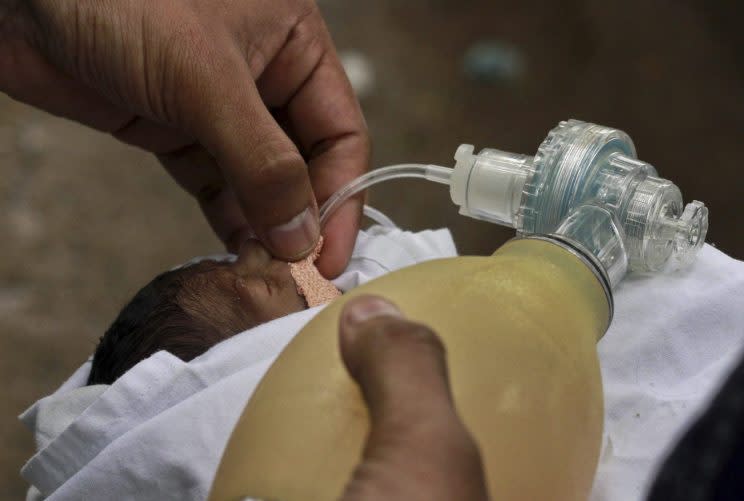Financial stress in pregnant women linked to newborns with low birth weight

Financial stresses in pregnancy could be linked to “medically vulnerable” infants, according to a new study.
Researchers at Ohio State University found that financial concerns about the arrival and care of a newborn could contribute to a higher likelihood of a low birth weight, or infants who are less than 5.5 pounds.
The paper, which was published in the Archives of Women’s Mental Health, indicated that while it is critical to improving access to housing, jobs and support for low-income women, there is also a need for education in stress-reduction techniques – such as meditation and breathing exercises.
“It’s important for all women who experience pregnancy-related stress to seek out help coping with that stress,” Amanda Mitchell, lead author and postdoctoral at Ohio State, said in a press release.
“And ob-gyns and other medical providers should also talk about stress during their visits with expecting moms.”
The study asked 138 women who were between five and 31 weeks pregnant to fill out questionnaires on their financial strain, symptoms of depression, pregnancy-related distress, stress and general anxiety. The average age of the participants was 29 years old.
Here are some of the questions that were posed to participants:
• “How difficult is it for you to live on your total household income right now?”
• “In the next two months, how likely is it that you and your family will experience actual hardships, such as inadequate housing, food, or medical attention?”
• “How likely is it that you and your family will have to reduce your standard of living to the bare necessities of life?”
After the respondents’ babies were born, researchers reviewed their medical records and their infants’ birth weights.
Previous research has linked low birth weights to women who have disadvantaged socioeconomic status.
But the researchers wanted to narrow down the factors involved.
According to the study, statistical modelling based on the questionnaire results pointed to pregnancy-specific distress, including concerns about the costs of medical care, changing relationships, labour and delivery, as well as infant health.
Statistics Canada says that low birth weights are “strong indicators” of health problems such as sudden death syndrome, diabetes, hypertension, heart disease, asthma, hearing problems and blindness.
From 2008 to 2012, about 6 per cent of infants in Canada have been born with a low birth weight.

 Yahoo Finance
Yahoo Finance 
